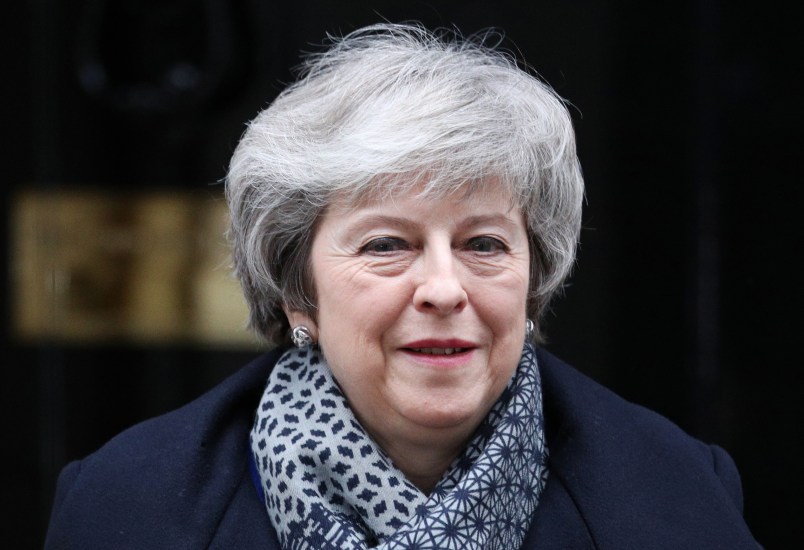British PM Theresa May has announced today that if her latest Brexit proposal fails Parliament will vote on delaying Brexit or proceeding to a no-deal Brexit. The failure of her latest plan seems highly likely, if not certain. That would simply match every other plan she’s cobbled together. I have not followed the inner workings of each of these deals to have much ability to predict. The basic issue has been clear for a while. There’s no majority for any actual deal since the whole thing was sold on false pretenses, with false promises and none of the challenging obstacles in view.
But if Parliament votes for a delay, it’s hard for me to see how that doesn’t sound the death knell of Brexit altogether. It has been crystal clear that there’s no parliamentary majority for any actual Brexit plan, though perhaps the concept could get a bare majority. Without the hammer of a deadline, why will it move forward at all?
The whole exercise has been a perfect test case of governance failure. An ill-considered referendum was sold on preposterous terms. The country committed to doing something that wasn’t actually doable, an idea that had, in the nature of things, innumerable insoluble challenges. As one observer put it, the British people committed to building a submarine out of cheese. And then Parliament had to set about doing that impossible thing.
The wisest commentary I’ve read on Brexit came in the lead up to the vote from Irish commentator Fintan O’Toole. Brexit, he wrote, was in fact a English nationalist movement. An independence movement from the EU, and the uncomfortable equality it requires with the rest of the states of Europe and perhaps just less than equality with Germany and France. But more than that it was independence from the United Kingdom, its own near millennium old insular empire and beyond this from history itself.
There is significant evidence that Russia employed money and propaganda to help the referendum along, probably doing more damage to Britain that decades of Cold War era espionage and proxy wars. But as with the analogous case in the US, this clearly wasn’t the entirety of the problem. The roots of the disaster were British or rather English. Russia just helped along the self-immolation.
Britain certainly isn’t a failed state. But it has spent the last two and half years as what we might term a failed government or a failed political structure, caught in a hopeless feedback loop, with no political formation (party) able to put the core question to a decision since both parties are significantly split on the Brexit question.
The hapless May captures so much of the nonsense in her own ministry. Actually a Remain supporter, she embraced the challenge of making Brexit a reality in order to become Prime Minister after David Cameron resigned and the actual authors of the calamity either could not or would not lead a government.






